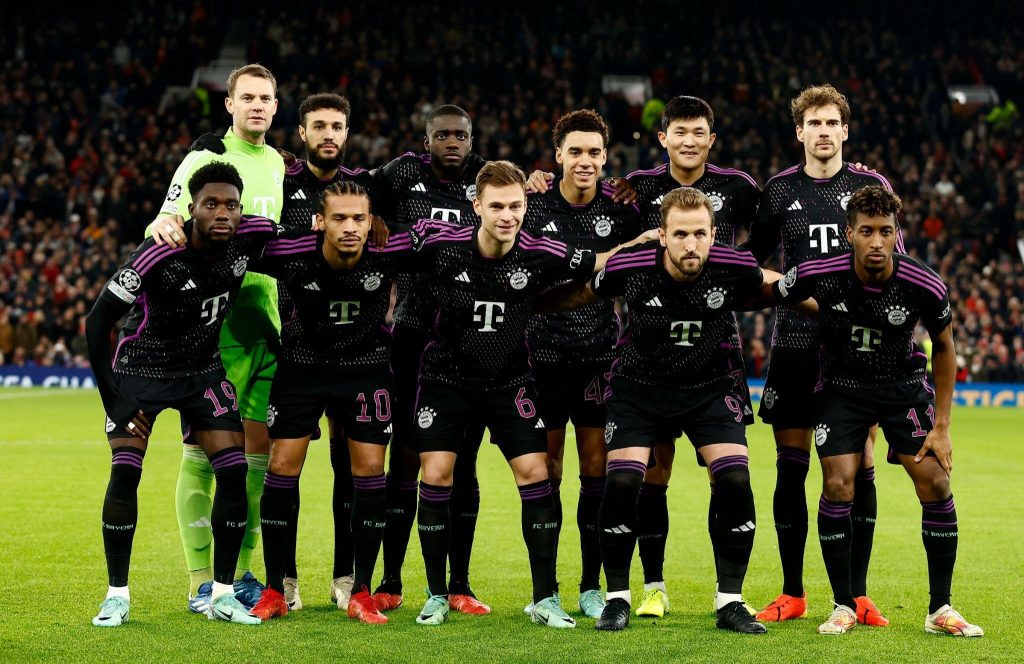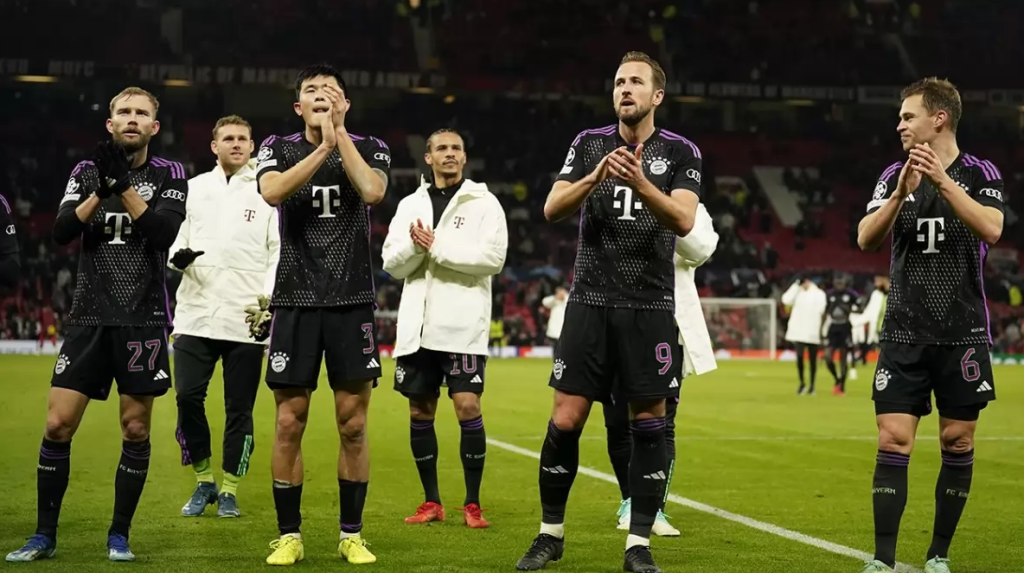Football is much more than just a sport. It’s a global phenomenon that connects people across cultures, backgrounds, and countries. However, within the broad world of football, there is a rich diversity that sets each club apart. From how clubs operate and interact with their communities, to the deep-rooted traditions and values they uphold, the culture of each football club is unique. Understanding these cultural elements allows fans to appreciate not just the action on the pitch but the essence of what makes each club special.
For football enthusiasts, watching games live on Xoilac TV adds an extra layer of excitement, as they can engage with the live atmosphere while also connecting with the broader narratives that each club represents. The spirit of football clubs is tied to a deep sense of identity, community involvement, and local heritage, elements which have made the sport a global passion. This article delves into the unique cultures of several iconic football clubs, exploring what makes them distinctive beyond their on-field performances.
Football Culture: More than a Game
When we speak of football culture, we are referring to more than just the sport itself. A football club’s culture is a reflection of its city, people, and the values it stands for. These factors contribute to the loyalty and passion of its fans, who often view the club as an extension of their own identity. It is a form of social belonging, a badge of pride, and a historical continuity passed down through generations. Let’s look at how some of the most celebrated football clubs in the world have developed a unique culture.
FC Barcelona: “Més que un club” (More than a club)
Few football clubs have a slogan as powerful and universally recognized as FC Barcelona’s “Més que un club” (More than a club). Founded in 1899, FC Barcelona represents not only a football team but a symbol of Catalan identity and pride. During the years of General Franco’s dictatorship in Spain, Barcelona became an emblem of resistance, with Camp Nou often serving as a platform for Catalan nationalism.
The club’s culture is deeply intertwined with the political history of Catalonia. Its values of openness, inclusivity, and community support reflect the aspirations of Catalan society. The club prides itself on being owned by its members (socios), which makes it a symbol of democracy within the world of football.
The playing style, rooted in Johan Cruyff’s philosophy of “Total Football,” emphasizes technique, creativity, and an attacking style of play. La Masia, the club’s famous youth academy, is another pillar of the club’s culture, producing talents like Lionel Messi, Xavi, and Andrés Iniesta. Players are taught not only football skills but also the values of teamwork, humility, and respect, which become part of the club’s DNA.

Manchester United: The Theatre of Dreams and Global Iconism
Manchester United, one of the most globally recognized football clubs, has a culture steeped in resilience, ambition, and a never-give-up attitude. Old Trafford, often referred to as “The Theatre of Dreams,” stands as a monument to the club’s long history, filled with triumph and tragedy alike.
Founded in 1878, Manchester United’s culture was shaped by its working-class roots in the industrial heart of Manchester. The club’s rise in popularity during the 1950s was driven by the vision of manager Sir Matt Busby, who nurtured young talents like Bobby Charlton and George Best in what became known as the Busby Babes. However, the tragic 1958 Munich air disaster, which claimed the lives of eight of the team’s players, left an indelible mark on the club’s culture. The event is remembered every year as a symbol of unity and resilience.
Manchester United’s success during Sir Alex Ferguson’s era, which spanned over two decades, solidified its position as one of the most successful and marketable football clubs in the world. The club has a vast global fanbase, and its values of hard work, determination, and constant pursuit of excellence resonate with fans from diverse backgrounds.
Boca Juniors: Passion, Grit, and Buenos Aires
In South America, few clubs can match the fervor and passion of Boca Juniors. Based in Buenos Aires, Argentina, Boca Juniors embodies the working-class spirit of La Boca, the neighborhood where it was founded in 1905. The club’s intense rivalry with River Plate, known as the Superclásico, is one of the most famous and fierce football rivalries in the world.
Boca’s culture is one of grit, passion, and loyalty. The fans, known as La Doce (The Twelfth Man), play a pivotal role in creating an intimidating atmosphere in La Bombonera, the club’s iconic stadium. The chants, banners, and constant singing are integral to the matchday experience, creating an environment that many footballers call the most intense in the world.
Players at Boca Juniors are celebrated not only for their talent but for their heart and desire. Diego Maradona, one of the greatest footballers of all time, had two stints at Boca, and his name is still revered at the club. For Boca fans, football is not just a sport but a way of life, where victory is cherished, and defeat is met with fierce resolve to come back stronger.
Borussia Dortmund: A Club for the People
Borussia Dortmund (BVB) is often described as a “club for the people.” Based in Germany’s industrial Ruhr area, Dortmund has built a reputation for its close ties to the working-class community and for offering affordable match tickets, ensuring that the sport remains accessible to all. Their famous home ground, Signal Iduna Park, boasts Europe’s largest standing terrace, the Südtribüne (South Stand), which can hold over 25,000 fans. The Yellow Wall, as it is known, is a testament to the unwavering loyalty and passion of the Dortmund supporters.
The club’s identity is built around unity and resilience, values that stem from the post-war period when the club faced financial hardships and almost ceased to exist. The community’s involvement in saving the club during those tough times has forever cemented a strong bond between the supporters and the club.
Borussia Dortmund is also known for its emphasis on youth development and attractive, attacking football. Players like Robert Lewandowski, Mario Götze, and Jadon Sancho emerged through BVB’s ranks or were polished during their time at the club, only to go on to international stardom.
The Role of Fans in Shaping Football Club Culture
One of the most critical aspects of a football club’s culture is the relationship it maintains with its supporters. The fans are the heart and soul of every club, often shaping its identity and philosophy. Clubs like Celtic FC in Scotland, known for their charitable initiatives and close connection with the local community, or Athletic Bilbao in Spain, which has a long-standing policy of only signing Basque players, demonstrate how fan values can influence a club’s culture.
Football supporters often bring their social, political, and cultural contexts into the club they support. For instance, clubs like Lazio and Livorno in Italy have been associated with political ideologies on the far right and left, respectively. These identities may come to define how a club is perceived not only by its supporters but by the broader football world.
At the end of the day, the culture of a football club is defined by a symbiotic relationship between the team, its community, and its fans. While the players and managers may come and go, the spirit of the club remains deeply rooted in the traditions and values upheld by the supporters.

Conclusion: A Global Experience of Unique Club Cultures
Football clubs across the world are more than just teams competing for silverware. They are embodiments of local, national, and even global identities. Each club has its own story to tell, a history shaped by victories, defeats, tragedies, and triumphs. Whether you’re a fan of Barcelona’s Catalan pride, Manchester United’s resilience, Boca Juniors’ passion, or Borussia Dortmund’s sense of community, there’s a cultural richness in football that transcends the 90 minutes on the pitch.
For fans, watching these clubs play live—especially on Xôi lạc—is an opportunity to witness not only thrilling football action but also the unique traditions and spirit that define each club’s identity. Football, at its heart, is about belonging to something greater than oneself, and through each club’s distinct culture, this sense of connection and pride continues to thrive globally.
